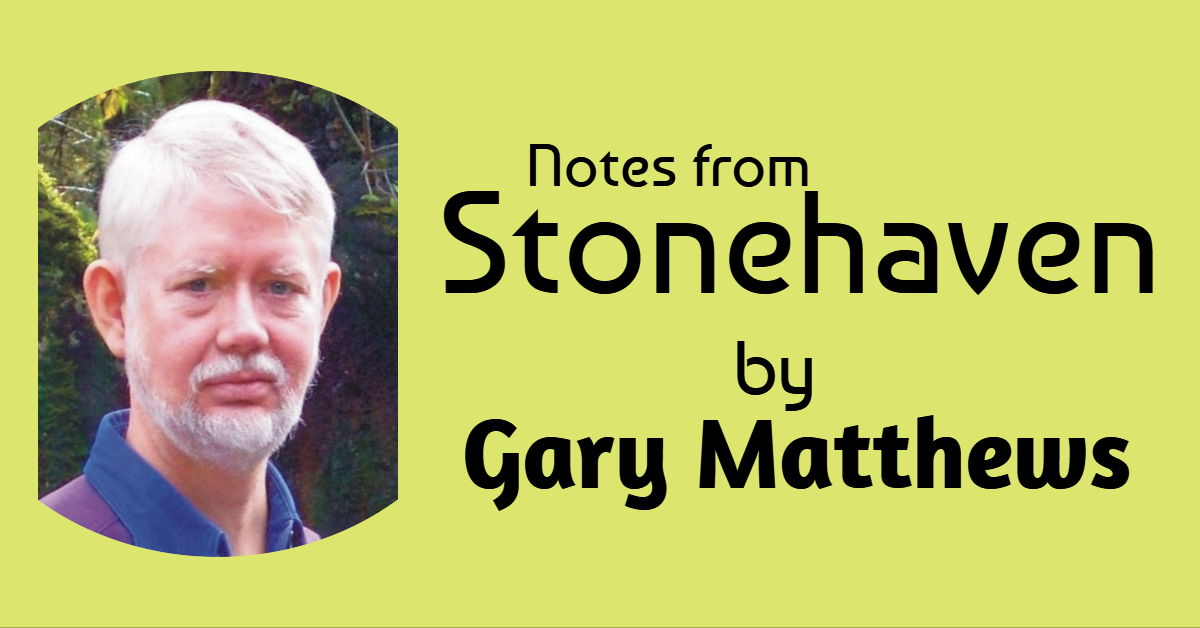Tag: One word
-

One Word: Anachronism
An anachronism is something that doesn’t fit, time-wise or date-wise — a chronological inconsistency. It derives from the Greek “ana” (against) and “chronos” (time). It’s something appearing in, or being attributed to, a period other than that to which it belongs. Visualize, for example, a replica of that famous painting of George Washington crossing the…
-

One Word: Rudyard Kipling’s “If —”
Could Rudyard Kipling’s “If—” perhaps be the longest English poem ever written about a single one-syllable word? Before discussing this, let me confess: Yes, I know how strange a question like this must make me seem, to my beloved readers! Who frets about stuff like this, anyway? The question isn’t important. But like lots of…
-

One Word: Whisk
Casting about for a write-worthy word, my eyes fell on a whisk broom. “Whisk” – it occurs to me – is a wonderful word. It’s short (I like that), familiar (I like that, too), and vivid, by which I mean it conjures up a bright mental image. (I particularly like that.) Perhaps best of all,…
-

One Word: Portmanteau
A portmanteau is a word formed by combining meaning and partial sounds from at least two other words. Obvious example: smog. A mixture of smoke and fog, the word combines sounds from each. A portmanteau differs from a compound, which combines two complete words. Thus “motorhome” is a compound; “motel – meaning “motor hotel” –…
-

One Word: Chemical
How I’d love to have a dime for every time I’ve heard someone express a liking for “chemical-free food” – or something similar. Let’s break this down: A chemical is any substance that can be defined by its atomic or molecular composition. That covers a lot of ground! Any element is a chemical, an element…
-
One Word: Auto-antonym
An auto-antonym is any word that functions as its own opposite. The very idea seemed bonkers when I first heard about it. But English has quite a few such words. Normal antonyms are words with opposing meanings – up and down, in and out, good and bad. What’s different in the case of an “auto”…
-
One Word: The Elephant in the Room
Want to write and speak with lasting impact? Want to convey thoughts that touch, that move, that heal? Don’t worry too much about the right words. Focus first on finding the right topic. (The words come later.) There’s one right topic, and it’s always the same: It’s the elephant in the room. No, not the…
-

One Word: Next
We’re hurtling down the freeway in my friend’s car. He’s driving. I’m riding shotgun, giving directions. I tell him: “Get off at the next exit.” He says: “Okay.” A few minutes later, as we approach the exit, he puts pedal to the metal and roars past it. “Hey!” I exclaim. “You were supposed to turn…
-

One Word: Beg
My white-haired physicist friend assured me he could prove there is no life after death. That certainly caught my attention. He knew it would. That’s because I do believe in human immortality. I think, God willing, that being dead will be a lot of fun. My friend’s bold challenge left me no choice but to hear…
-
One Word: Mild!
Cheri and I were with a group of fellow Peace Corps volunteers in Grenada. The year was 1989. With us (because we were guests in his office) was an American career diplomat. This gathering happened (coincidentally) at a time when most of the volunteers were dismayed by news of a recent political appointment in Washington.…
-

One More Word: To Casually Split Your Infinitive With
I like to occasionally split an infinitive. Not always – just now and then. Neither too often, nor too seldom. There’s a fine line. Quick review: An infinitive is the basic form of a verb, usually preceded by “to”. If I say “to sleep, perchance to dream”, then “to sleep” and “to dream” are infinitives.…
-
And Another Word: The Conjunction You Start Your Sentence With
There’s this idea that it’s wrong to open a sentence with a conjunction. Conjunctions are words like “and”, “or”, “nor”, “but”, “because”, “so”, and so forth. They connect other words, phrases, or sentences. In other words, their function is to conjoin. That’s why they’re called conjunctions. The whole topic can get very complicated: There are…
